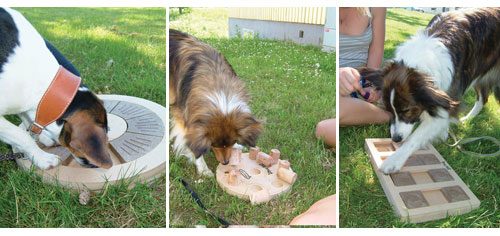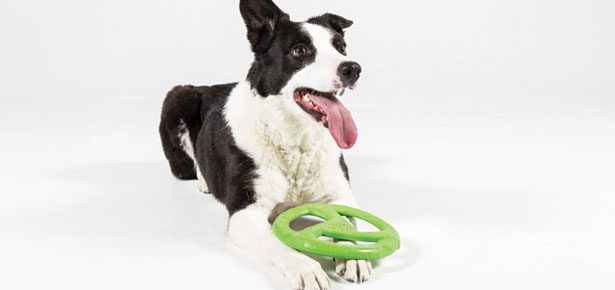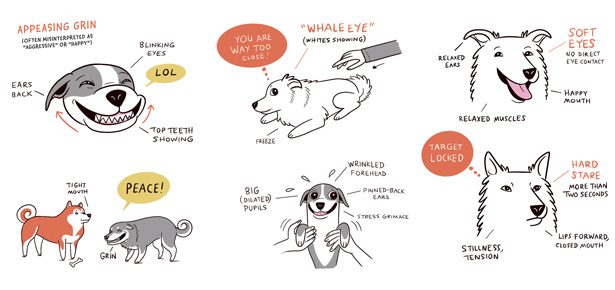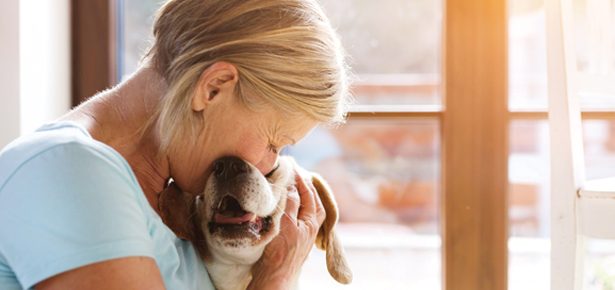
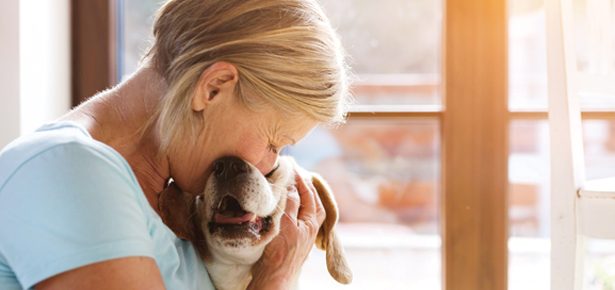
Why and When a Senior Should Adopt a Dog
Canine Companionship for Seniors
Confined to a wheelchair after a leg amputation and with no immediate family nearby, life in St. Louis, Missouri, was a lonely one for Marilyn Johnson.
Days could pass without the 77-year-old speaking to a single person. But that all changed when she adopted Diva, a sweet Cocker Spaniel given up by a breeder because of her “unusual blue eyes.”
Johnson says now with the “sassy spaniel” by her side she’s become a social butterfly and has met everyone in her neighbourhood.
“They’ll come out to the street to meet her and pet her and we’ll start talking. The socializing is good for her—and me,” she said.
“I don’t get so lonely anymore, or depressed. She’s been a wonderful help with that.”
Marilyn adopted Diva through Senior Dogs 4 Seniors, a service that matches golden-aged animals with golden-aged pet parents. It’s placed more than 1,500 dogs since launching seven years ago.
Husband and wife team Diane and David Pierce started the adoption service after seeing the positive and life-affirming effects their service dogs had on seniors during visits to nursing homes, hospices, and senior’s centers.
“You see the remarkable difference in their state of mind. Their faces would just light up,” Diane said, recalling grieving seniors and older people with chronic health problems who would come out of their shell and “transform” when the dogs entered the room. “We knew it was difficult to find an adopter for an older dog and we were also aware of the magic they do for older people’s moods.”
The Pierces say senior pets make perfect companions for senior people because the majority are already housebroken, are trained to walk on a leash, and are much calmer than their puppy counterparts. While the older dogs still love getting regular walks, they’re just as happy to curl up on a lap while their owner watches TV or reads—an ideal situation for someone less active.
Knowing that some seniors have mobility issues, Senior Dogs 4 Seniors offers adopters a range of support services, including taking the dog to vet and grooming appointments and administering annual vaccinations and flea treatments. Its $30 monthly “Complete Care” package includes regular home visits to drop off food and medication, trim the dog’s nails—even clean up poop in the yard.
Staff will even watch the dog should the owner go on vacation or end up in hospital, which is exactly what happened to Marilyn Johnson.
“I broke my arm and I was in hospital for five months and they kept Diva until I came home,” she said. “I pay them a minimal amount each month and they take care of everything. I mean everything. It’s a blessing.”
The agency even works with the senior’s lawyer to create a dog trust to provide ongoing physical, emotional, and financial care and support for the dog in the event the owner passes away.
Having a support system is key for senior adopters, says Sherri Franklin, Executive Director of the San Francisco-based group Muttville, which waives adoption fees for people older than 62 who want to adopt a companion animal from the shelter system.
If the match doesn’t work or the owner faces unexpected health challenges that make it impossible to care for the animal, Muttville “will happily reassume care.”
With many of the animals Muttville takes in coming from seniors that have either passed away or entered a care home, she says the new matches with other seniors are a win-win, and have a transformative effect on elderly owners, especially those going through the loss of a partner or loved one.
“It gives a person a reason to get up for a walk. Animals fill the empty space,” Franklin said. “It gives one a way to meet people and be a part of the community again.”
That was true for Irene Griswold, a retired university professor in New Westminster, B.C., who lost her son and broke her hip in the same year.
“It’s amazing. You’re hurting inside but that little dog has to go out, so it motivates you to go out,” she says, adding that her dog Hope, a puppy mill survivor who passed away two years ago at age 13, seemed to instinctually know she was grieving.
“She’d know if I was going to cry. She knew when I needed comfort and would come curl up beside me. She was a good girl.”
Now Irene shares her home with Spyke, a Pomeranian cross that ended up in a rescue after his elderly owners passed away.
“He’s like my little shadow,” Irene says, adding that the spunky dog gives her a reason to get outside every day. “Our house just doesn’t feel like a home unless it has dogs in it.”
Physical Benefits
Studies show that in addition to providing friendship, security, and companionship to seniors living on their own, having a companion animal can actually improve a person’s mental and physical health in a plethora of ways.
A recent study from the European Journal of Medical Research found that elderly dog owners get much more exercise than their animal-less counterparts, suffer less loneliness, and are given a sense of purpose.
Study authors found that taking short, frequent walks with a dog can lessen depression, anxiety, and stress, and that physical activity doesn’t need to be overly intense: Just by letting the dog outside, feeding him on a schedule, and playing fetch was found to have positive effects on people’s physical health.
The extra exercise also translates to fewer trips to the doctor, according to a recent study of 1000 U.S. Medicare patients, which found that senior dog guardians had 21 percent fewer physician visits than non-dog owners.
Ditto for petting that dog: it can decrease blood pressure and even your resting heart rate.
That relaxation works both ways. Petting an animal helps your body release a relaxation hormone while cutting down levels of stress hormones, and it soothes your pet at the same time, says Alan Beck, director of the Center for the Human-Animal Bond at Purdue University.
Marilyn Johnson, for one, says her health has improved with Diva in her life.
“My blood pressure has gone down because my dog calms me down,” she said. “It’s calming. She relaxes me. Just petting her is incredibly therapeutic.”
What Makes a Good Match
While there isn’t one specific breed of dog that makes a perfect match for an older adopter, shelters and rescue organizations alike agree having realistic expectations and a support system in place increases the chances of the match being successful.
A senior should be able to provide exercise for their new pet, whether that means walking the dog themselves or getting a neighbour, family member or service provider to help.
Seniors Dogs 4 Seniors also considers if the adopter has a fenced yard, because it’s easier for the owner to let the dog outside for pee breaks, and it’s also safer for the animal.
A very large or active animal may be a poor match for a senior with limited strength or mobility, and could be a tripping hazard, warns Diane Pierce.
“In the beginning we took in all dog breeds but now mostly take in smaller lap dogs, as that’s what older people want,” she adds, saying Shih Tzus, Yorkshire Terriers, Maltese, and toy or miniature terriers are their most popular breeds.
That said, at the Dogway Dog Rescue Society in BC, which places older dogs into the homes of older people, breeds are a secondary consideration to the senior’s lifestyle, history, and activity level.
“There are many seniors that are more physically fit than people half their age, and many seniors have only had one breed of dog their entire life. However, common sense must prevail and we match energy levels. Many seniors with a fenced yard want an old Lab or Shepherd and condo dwellers want small dogs,” says society director Cherry Latour.
If you’re considering getting a pet for an elderly parent or grandparent, or if you’re a senior considering fostering or adopting, being open and honest about capacity of care is critical.
At Dogway, seniors and their extended family meet to discuss the reality of that individual’s situation, including physical impairments, mental capacity, and living environment. The wellbeing of the dog is first and foremost, says Latour.
After hundreds of matches, she believes the lives of seniors can be immeasurably improved by the addition of a companion animal in the home.
“Both the dogs and the seniors get to live out their days experiencing the unconditional love they both deserve,” Latour said. “It’s a beautiful thing.”
Join the newsletter and never miss out on dog content again!
"*" indicates required fields
By clicking the arrow, you agree to our web Terms of Use and Privacy & Cookie Policy. Easy unsubscribe links are provided in every email.


